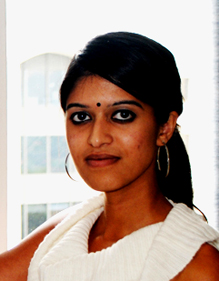
The aftermath of Guptagate motivated me to write this opinion piece. Now that the dust has settled, and I’ve had time to digest it all, I can express my frustration:
It bothers me that some people in our country let colour blind them to the real issues in society.
The injustices and wounds of our past, which continue to be felt across our land, have shown us that race cannot be ignored, but my gripe is using race to muddy the waters so that the real injustices seem less glaring.
Guptagate caused a racial row between Africans and Indians, and admittedly I found myself caught up in the spat, defending my race against stereotypes that surfaced of Indians naturally being corrupt.
Of course, people like Schabir Sheik, Vivian Reddy and the Gupta family don’t really help when trying to argue against the generalisation. However, I realised that I, along with many others, had been fighting the wrong fight altogether.
We do not necessarily care about the colour of the money that lines our pockets, but we care about the colour of the individual taking the money. We divide up along racial lines instead of uniting to fight the common enemy of corruption. So much emphasis is placed on the colour of our skin, that we become corruption-blind instead of colour-blind.
Surely, if someone is accepting bribes, abusing his or her power, or behaving in an unethical manner, it has absolutely nothing to do with their colour of their skin, because corruption knows no colour.
Minister of Education Angie Motshekga calling Equal Education “a group of white adults organising black African children with half-truths” is another typical example. Why should your race matter when you are fighting for proper education and schooling facilities for children?
Another instance was the response to the latest adventures of Corruption Watch’s animated character, Bra Tjo-Tjo, which focused on the Gupta saga. The YouTube video received some unsettling comments from viewers such as, “Why is the person giving tjo-tjo black?” and “Anything run by this racist government is black.”
While these comments were distressing, I found it more worrying that some people chose to ignore the real issues and focus on skin colour instead. Dealing with corruption daily doing my job, I feel that it is my duty to alert the public to what I have learned:
- Corruption is not a racist individual who only wants to be associated with certain groups of people.
- Corruption does not discriminate against gender, religion, political alliance or level of income.
- And finally, corruption does not care whether you were born in this country or come from another, it will worm its way into your life anyway.
Corruption and racism are two separate issues. If we choose to put them in the same field, we are missing the point completely. Corruption goes beyond race, beyond gender, and beyond the size of your pay cheque. While corruption is the root of many evils in our society, we cannot make it the root of racism as well.
* Disclaimer: The views expressed in this article are the writer’s own.

